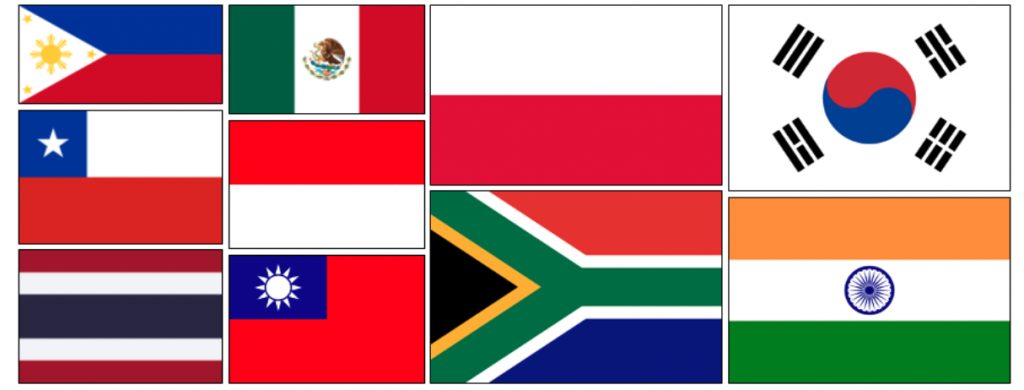The global energy shock is rapidly mutating into inflation, adding to pressures created by supply chain break-downs and China growth slow-down. Emerging Markets have so far failed the Great Expectations placed upon them, and are likely to underperform Developed Countires both in terms of financial markets and economic development.
Premier EM website Teliimer interpets lates IMF forecast and their implications for select EMs.
Hasnain Malik of Tellimer states
The IMF’s latest global economic forecast for real GDP growth is 5.9% for 2021 (down from 6.0% in July) and 4.9% for 2022 (unchanged), published on 12 October.
The mix of country contributors has shifted within these forecasts: disruption from Covid-19, particularly in poorer countries with insufficient access to vaccines, and supply chains (in richer countries) is largely offset by higher prices for commodity exporters.
We point to the following highlights:
While changes to growth forecasts are mixed across EM countries, inflation forecasts have been raised for most.
Consistent with commodity price strength is a significant bump across all metrics for Middle East oil exporters (excluding embargoed Iran) and, to a lesser degree, Russia.
The changes for other commodity exporters like Brazil and South Africa are more mixed, with a deterioration across all metrics for Brazil, but improving current account and fiscal balances for South Africa.
Persistent Covid disruption drags back growth forecasts for tourism-exposed Thailand but the emergence from Covid drives an increase for the likes of Iceland and Mauritius.
In large Asia EM, higher inflation in India and higher fiscal balances in China and Taiwan are the main changes. In small Asia EM, most metrics for Pakistan and Sri Lanka are worse, inflation is significantly higher in Indonesia, and among the manufacturing exporters there are only minor changes, with the positive exception of Vietnam (lower inflation, better current account balance).
Among the badly behaved policy countries, Nigeria is a rare oil exporter to have its fiscal balance forecast cut (along with Colombia), Turkey’s inflation is raised more than any other in our sample, and Argentina and Lebanon forecasts have been partially or completely omitted from the latest IMF database.
WATCH: Emerging Markets: The Dawn Of A Lost Decade | Real Turkey
Equity strategy implications
We have recently covered the negative issues of Covid disruption, high fuel prices and high food prices for emerging markets.
We have also recently meshed factors such as Covid disruption, commodity price strength, and the potential for tourism recovery (where Covid disruption is subsiding) with equity market valuation in a global emerging and frontier market strategy framework in the two reports linked below.
EMs which have underperformed year to date and are cheap versus history:
Large EM: commodity exporters Brazil and South Africa, hit by Covid and domestic politics; regulation-hit China Tech.
Small EM: commodity Chile, Colombia, Peru; big pop Indonesia, Pakistan, Philippines; trapped Malaysia; high rate Egypt.
WATCH: How Erdogan is Destroying Turkish Economy ?
EMs that have outperformed year-to-date and are expensive versus history:
Large EM: Teflon Modi-led India, oil price-driven Russia, negative real rate-fueled Saudi, regulation-immune Taiwan Tech.
Small EM: Locally driven Abu Dhabi, Bangladesh, EU-linked Hungary, Romania; off-EM benchmark Kenya; overseas-listed Tech.
Follow our English language YouTube videos @ REAL TURKEY: https://www.youtube.com/channel/UCKpFJB4GFiNkhmpVZQ_d9Rg
And content at Twitter: @AtillaEng
